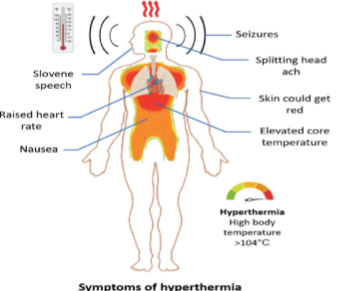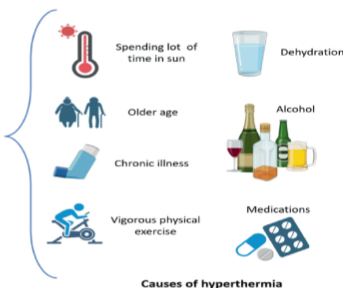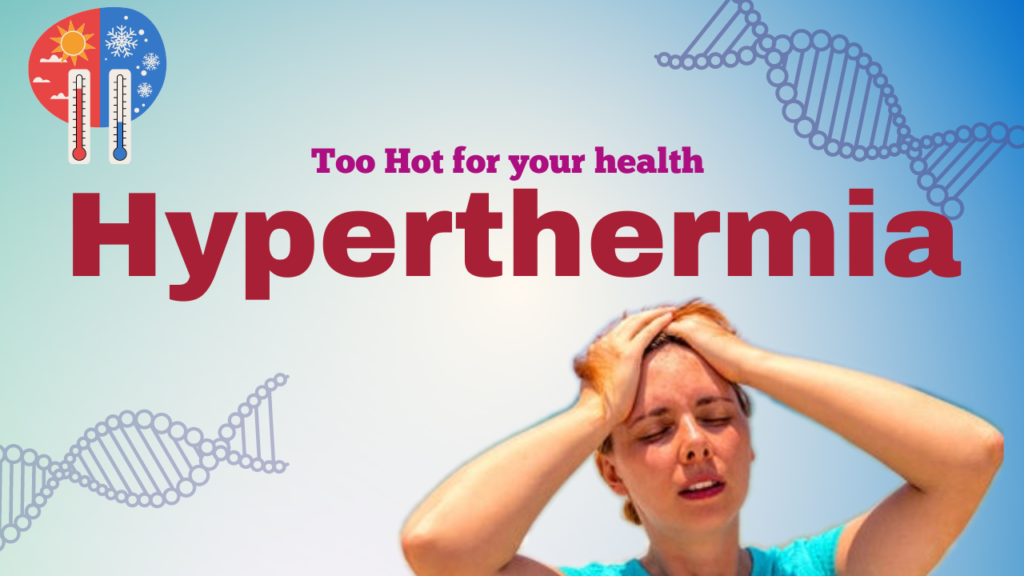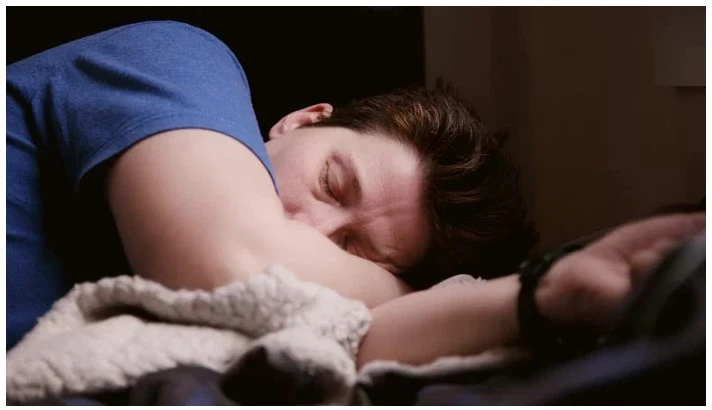Hyperthermia: Hot summer weather can pose special health risks to older adults. The National Institute on Aging (NIA), part of the National Institute of Health, has some advice for helping older people avoid heat-related illnesses, known as Hyperthermia https://www.psychologytoday.com/us/basics/depression
Hyperthermia is an abnormally high body temperature- or overheating. It’s the opposite of hyperthermia, when your body is too cold. Hyperthermia occurs when your body absorbs or generates more heat than it can release. A human’s normal body temperature is about 98.6 degrees Fahrenheit. Risk of these conditions can increase with the combination of outside Temperature, general health and individual lifestyles.
Hyperthermia Symptoms :
- High body temperature (103 degree F or higher)
- Hot, red, dry or damp skin
- Fast, strong pulse
- Headache
- Dizziness
- Nausea
- Confusion
- Losing consciousness (passing out)
- weakneas
- irritability
- Thirst
- heavy sweating

Hyperthermia Causes :
Health related factors, some especially common among older people, that may increase risk of hyperthermia include:
- Being Dehydrated
- Age-related changes to the skin such as impaired blood circulation and inefficient sweat glands.
- Heart, lung and kidney diseases, as well as any illness that causes general weakness or fever.
- High blood pressure or other conditions that require changes in Diet. For example, people on salt-restricted diets may be at increase risk. However, salt pills should no be used without first consulting a doctor.
- Reduced sweating, caused by medications such as diuretics, sedatives, Tranquillizers and certain heart and blood pressure drugs.
- Taking several drugs for various conditions. It is important however, to continue to take prescribed medication and discuss possible problems with a physician.
- Being substantially overweight or underweight.
- Drinking alcoholic beverages.
Heat stroke is a life- theratening form of hyperthermia. It occurs when the body is overwhelmed by heat and unable to control its Temperature.

Management and Treatment :
- Stop physical activity and rest in a cool, well-ventilated environment
- Remove heavy or tight clothing
- apply a cool compress to your skin
- Gently stretch any muscle that are cramping
- Drink slightly salty beverages to replace lost electrolytes. You can have sports drinks or water with a few teaspoons of salt mixed in. Avoid caffeinated beverages
- Keep irritated skin dry. Apply a powder or ointment to reduce discomfort from a rash.https://techtrois.com/5-reason-to-take-breast-cancer-seriously-critical-insights-for-every-women/
How to rescue someone suffering from a heat-related illness:
- Get the person out of the heat and into a shady, air conditioned or other cool place.Urge them to lie down.
- Encourage the individual to shower, bathe or sponge off with cool water
- apply a cold, wet cloth to the wrists, neck, armpits and or/ groin. These are places where blood passes close to the surface of the skin, and the cold cloths can help cool the blood
- If the person can swellow safely, then offer fluids such as water, fruits and vegetables juice, but avoid alcohol and caffeine.
- If you suspect heat stroke, call 911



